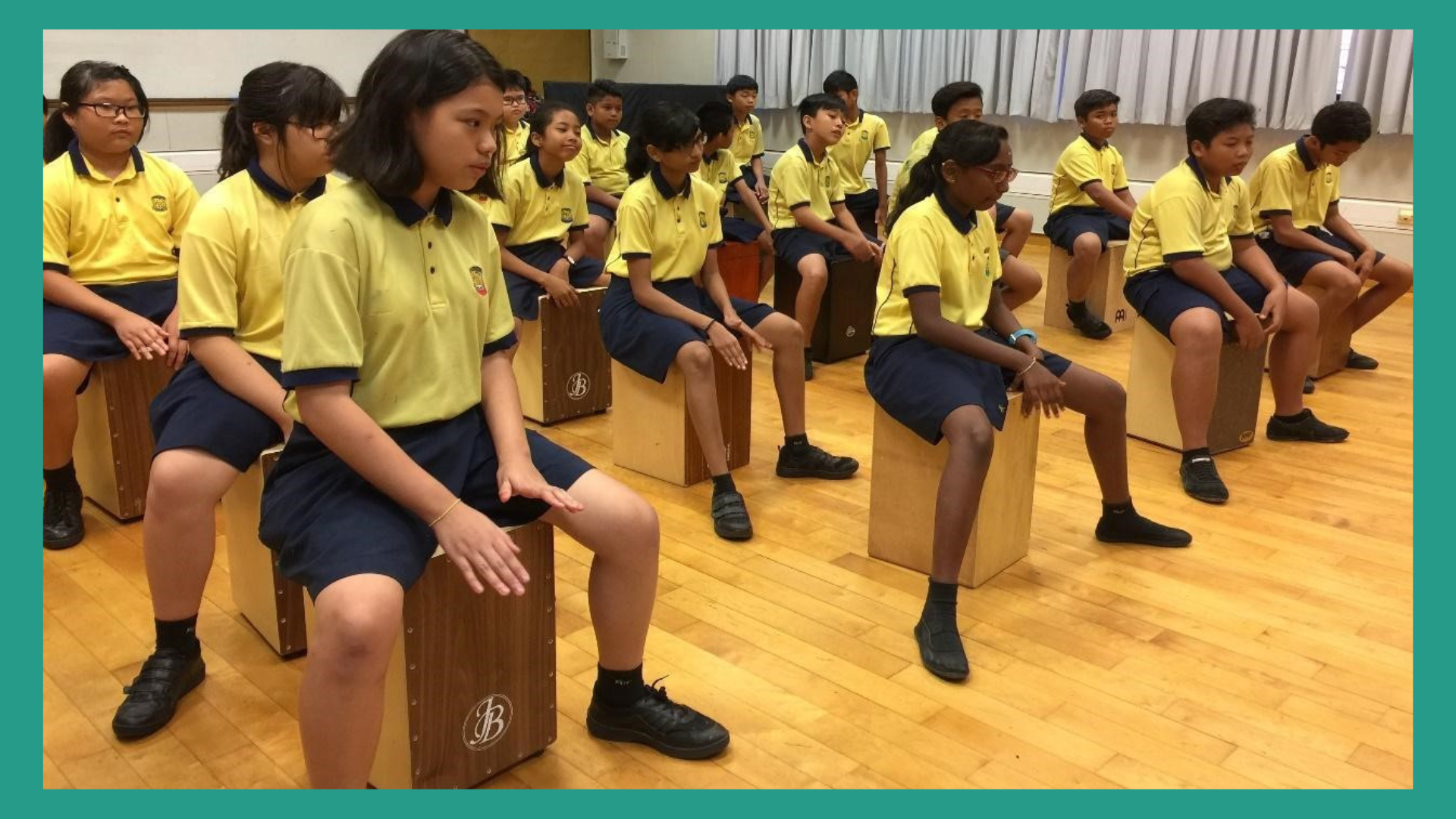Music
Music Curriculum Framework
Music is a key platform upon which every child is provided a basic music education, giving them opportunities to develop a connection to music. This contributes to the future development and preservation of Singapore’s cultural heritage. Music, being an integral part of many cultures, also provides a means to raise global awareness amongst students. The processes involved in music performing and creating, develop skills such as listening skills, fine motor skills, creative thinking skills and social skills. Music enables students to express their thoughts and ideas.
The aims of the Primary Music Syllabus are to:
- Develop awareness and appreciation of music in local and global cultures
- Develop ability for creative expression and communication through music
- Provide the basic to develop an informed and life-long involvement in music
Our Curriculum Framework focuses on providing musically engaging music lessons through student-centric teaching approaches, where students learn through the musical experiences of listening, performing and creating. Musical concepts are taught through songs, singing games, playing instruments or movement activities.
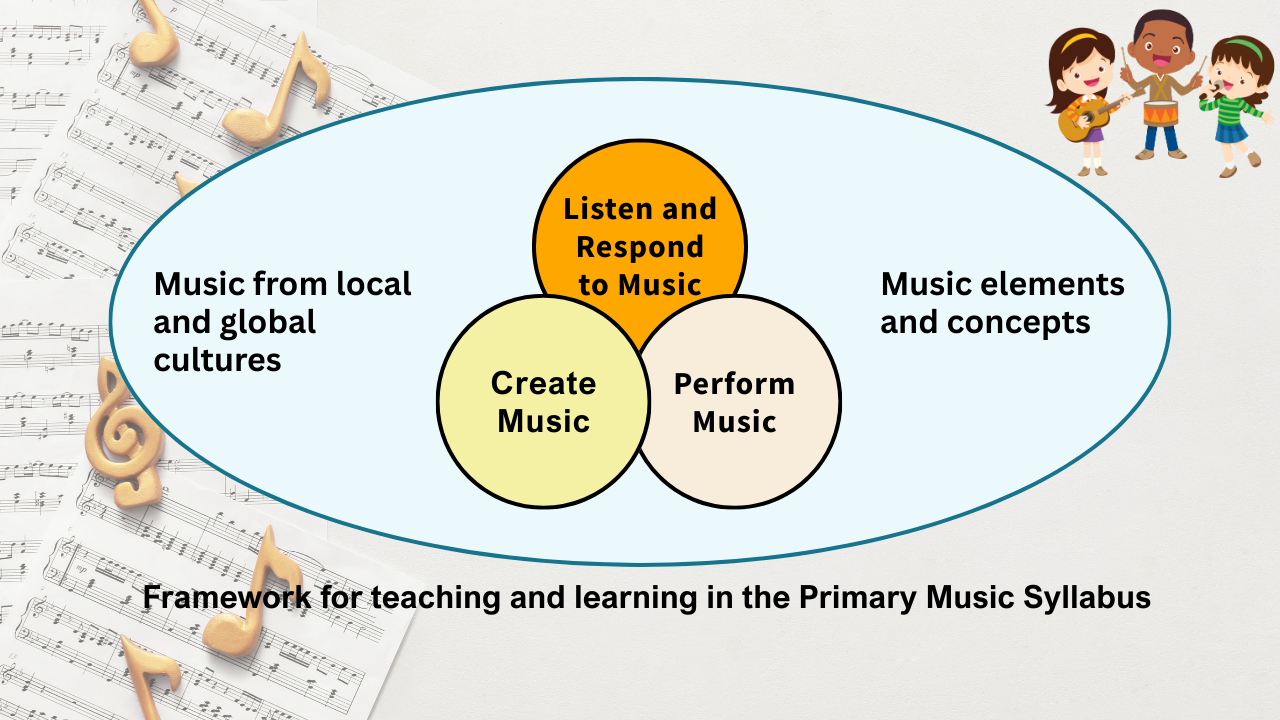
Department Pedagogy
In Kranji Primary School, we believe that students have the innate ability to listen, sing, dance, play and express themselves musically. Our students are provided with a meaningful learning experience through a variety of teaching approaches. An understanding of music begins with the perception of its basic elements and concepts. Students learn to use musical concepts or elements (e.g. melody, harmony, rhythm, tone colour, form, tempo, dynamics) to describe their musical performances and compositions. Instructional experiences are student-centric where students are given the opportunities to experience, explore, discover and make connections through listening, movement, performing and creating music.
The following are the pedagogies that our teachers adopt:
Orff
Developing musicianship through students’ imagination and creation.
- Explore, experience and learn music through games, speech, singing, movement, playing of instruments and improvisation
- Include Orff instruments (e.g. xylophone, glockenspiel, recorder) and non-pitched percussion instruments (e.g. woodblocks, hand drums, triangles) to provide a range of musical experiences from aural training to improvisation to ensemble performances
- Use of solfege, ostinato and drones as part of musical training
Recess @Busking
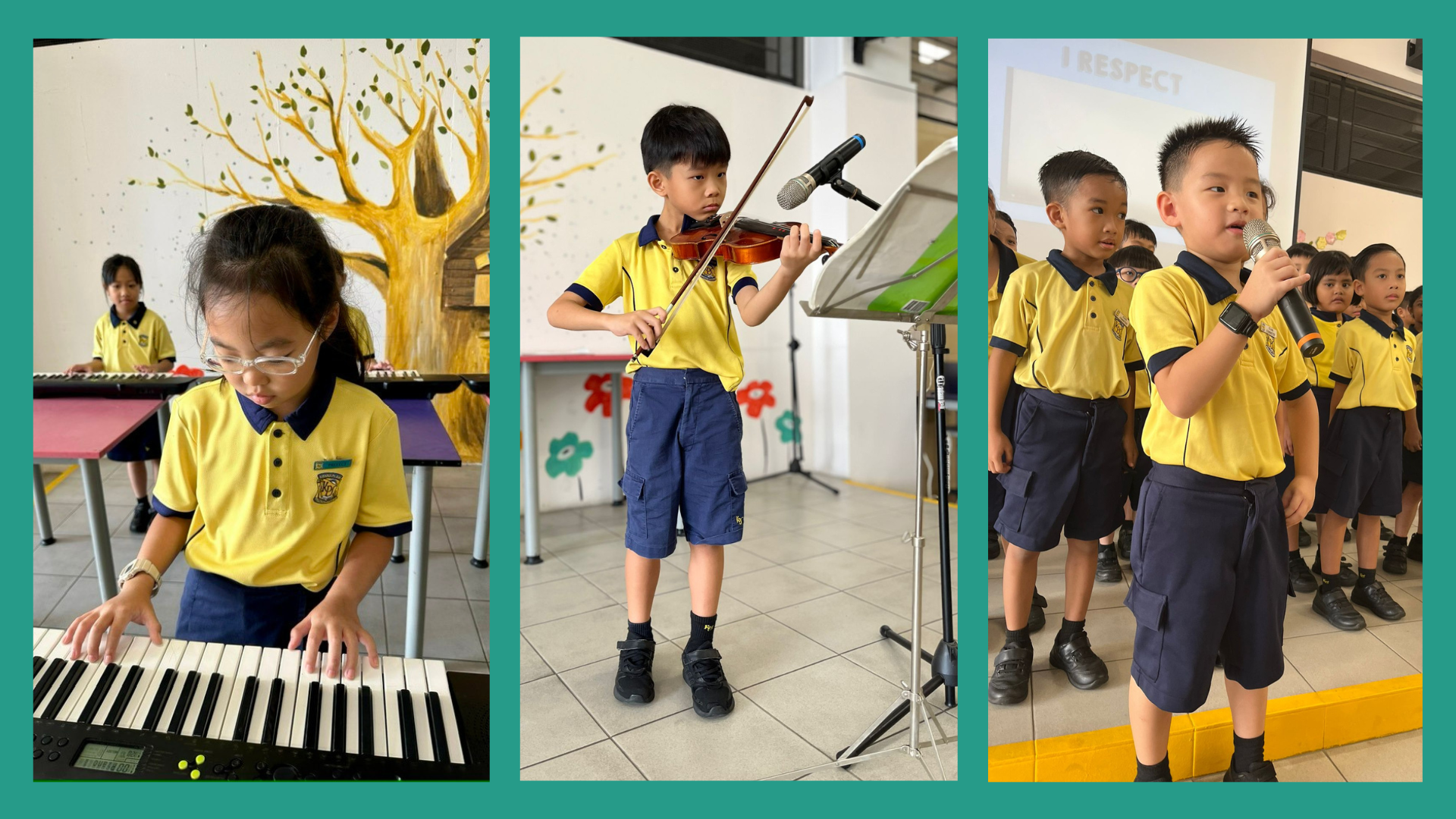
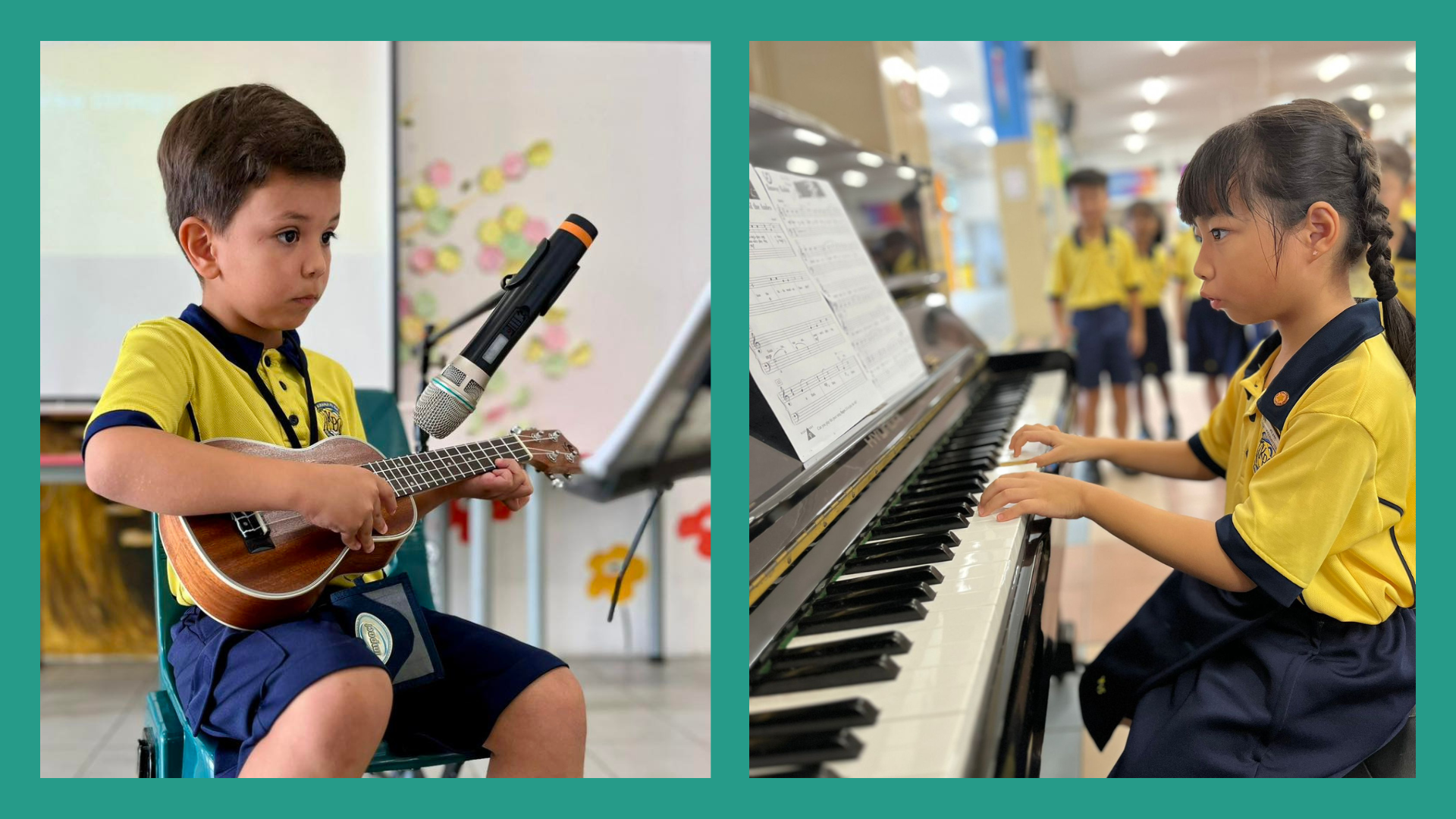
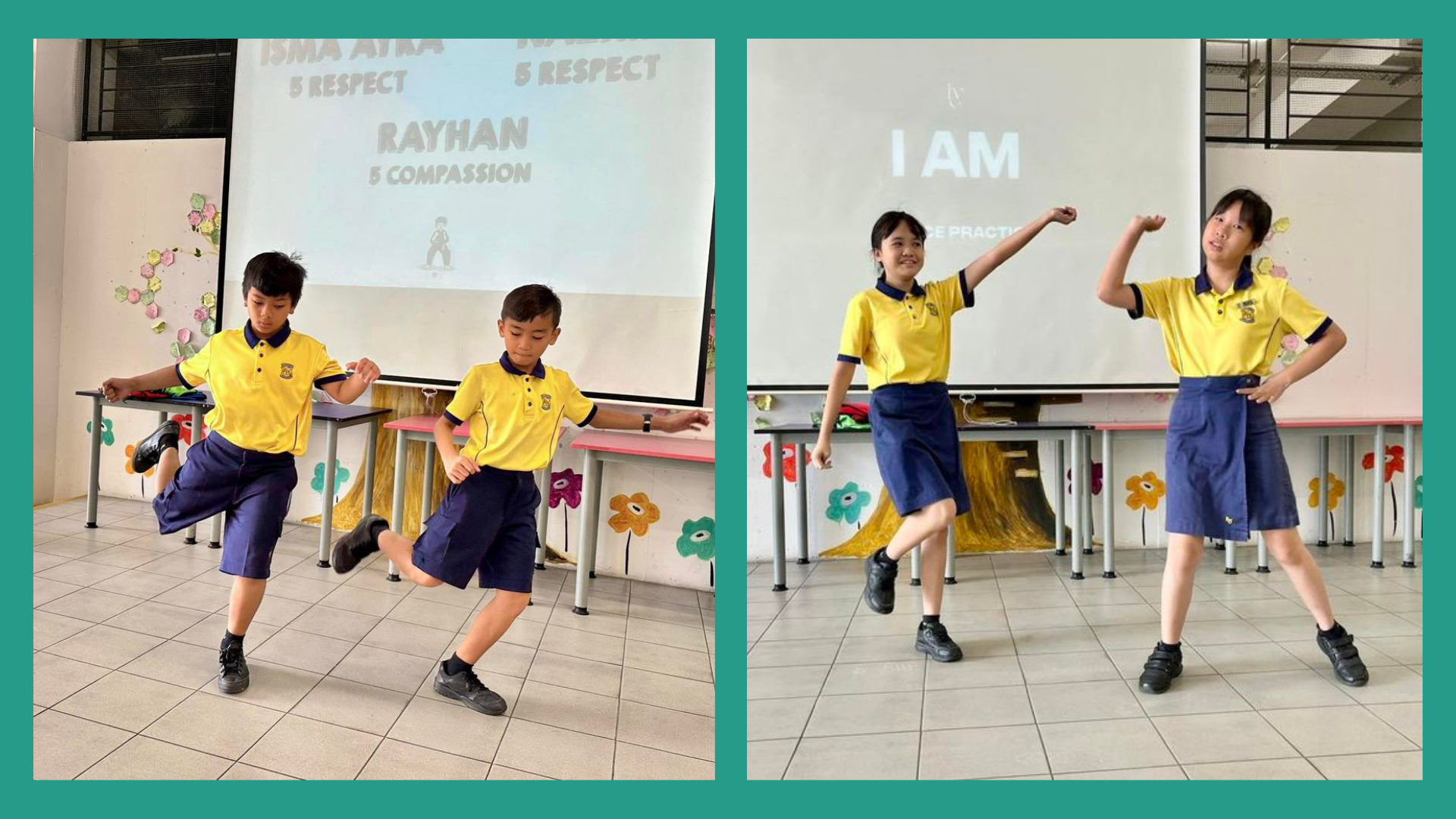
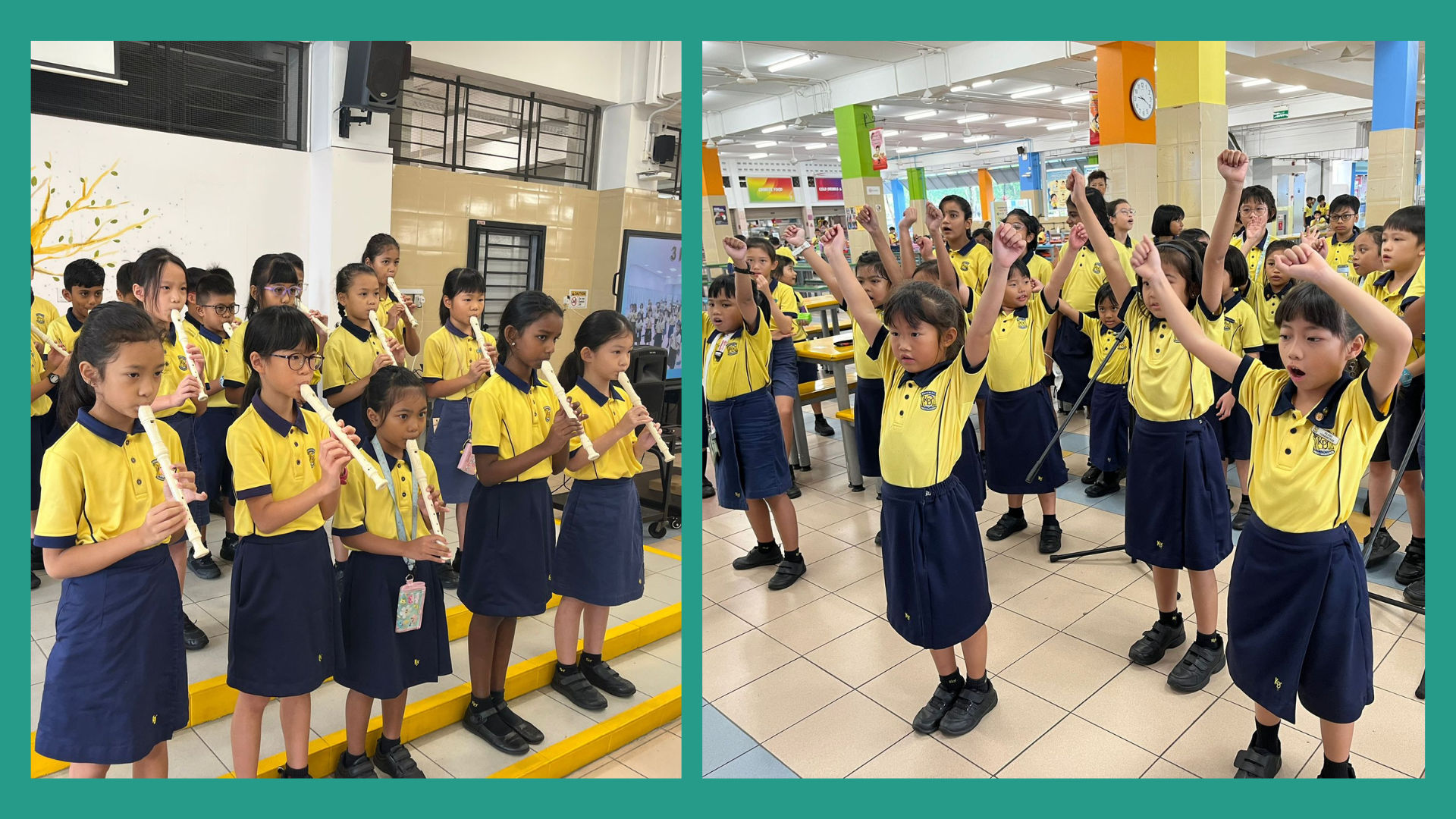
Kodaly
Developing students’ musical abilities through performing, creating, listening, musical literacy, critical thinking and developing them to be stewards of their own musical and cultural heritage.
- Advocate singing, aural training and music literacy
- Emphasize the use of composed Art music and folk music
- Movement (e.g. singing games) for musical development
- Use movable ‘Doh’ system to train the ears and develop understanding of the scale structure
Music Programme
Our school has a structured whole-school approach to music learning through a 6-year progressive programme. The programme sets out to achieve the following objectives, where students are able to:
- Contribute to the arts through various musical forms (active participation)
- Interpret music in his or her own style and to create movements and melodies (critical thinking)
- Appreciate culture differences and embrace diversity (appreciation of diverse culture)
| Level | Programme |
|---|---|
| Primary 1 | Creative Movement |
| Primary 2 | Ethnic Percussion |
| Primary 3 | P3 Boomwhackers |
| Primary 4 | P4 Garageband |
| Primary 5 | P5 Ukelele |
Level Programme
P1 Creative Movement
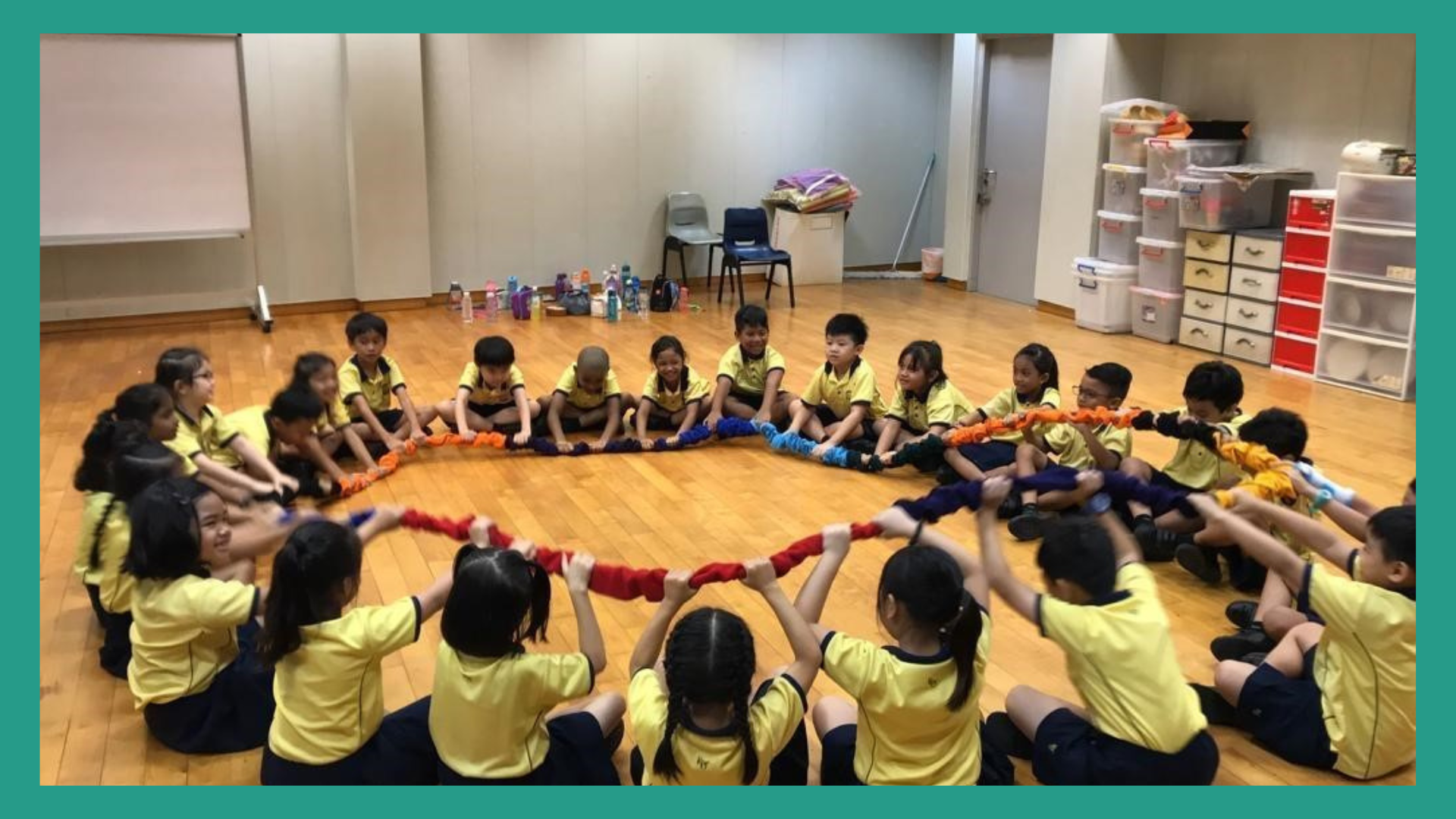
P2 Ethnic Drums
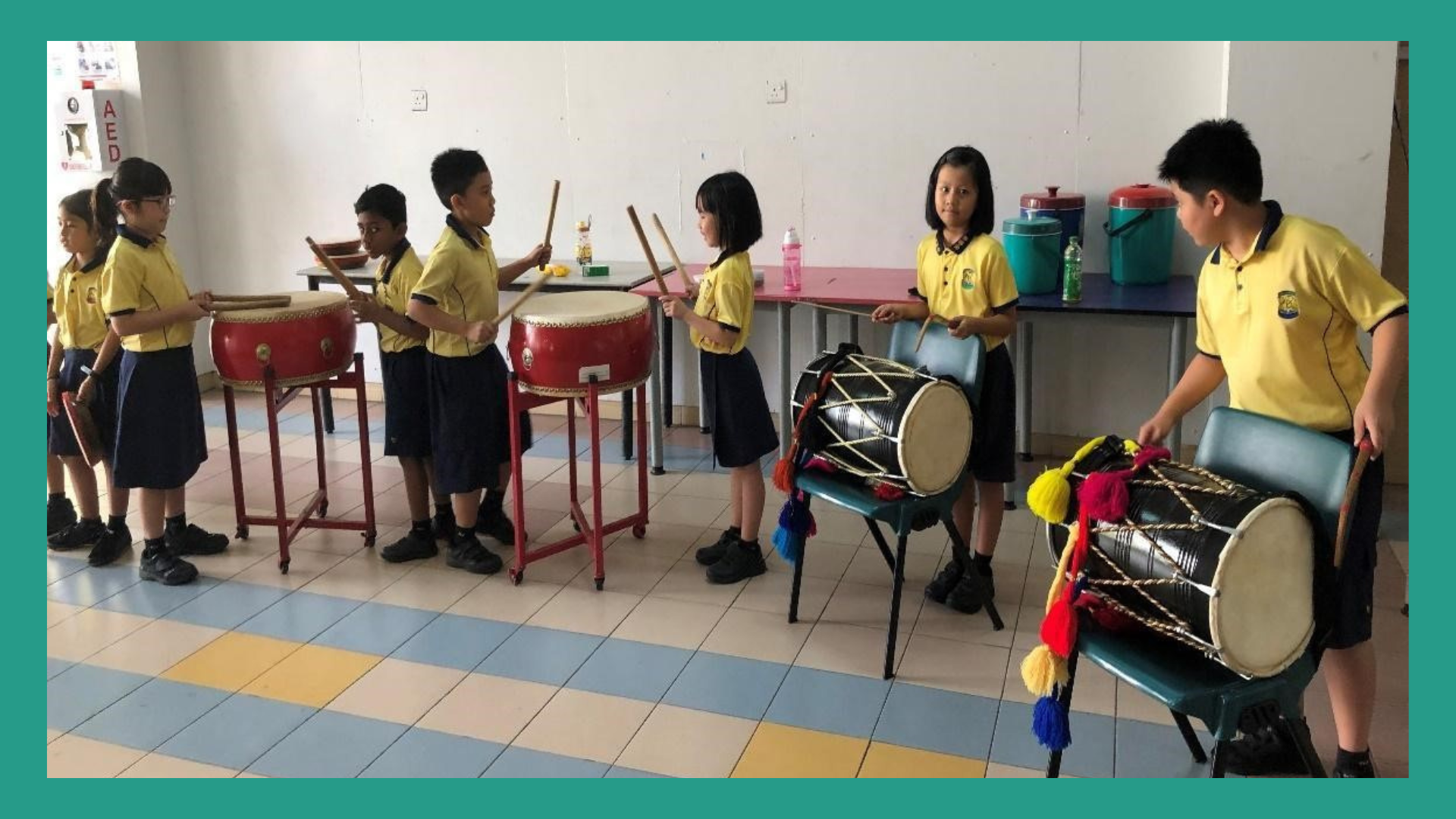
P3 Boomwhackers
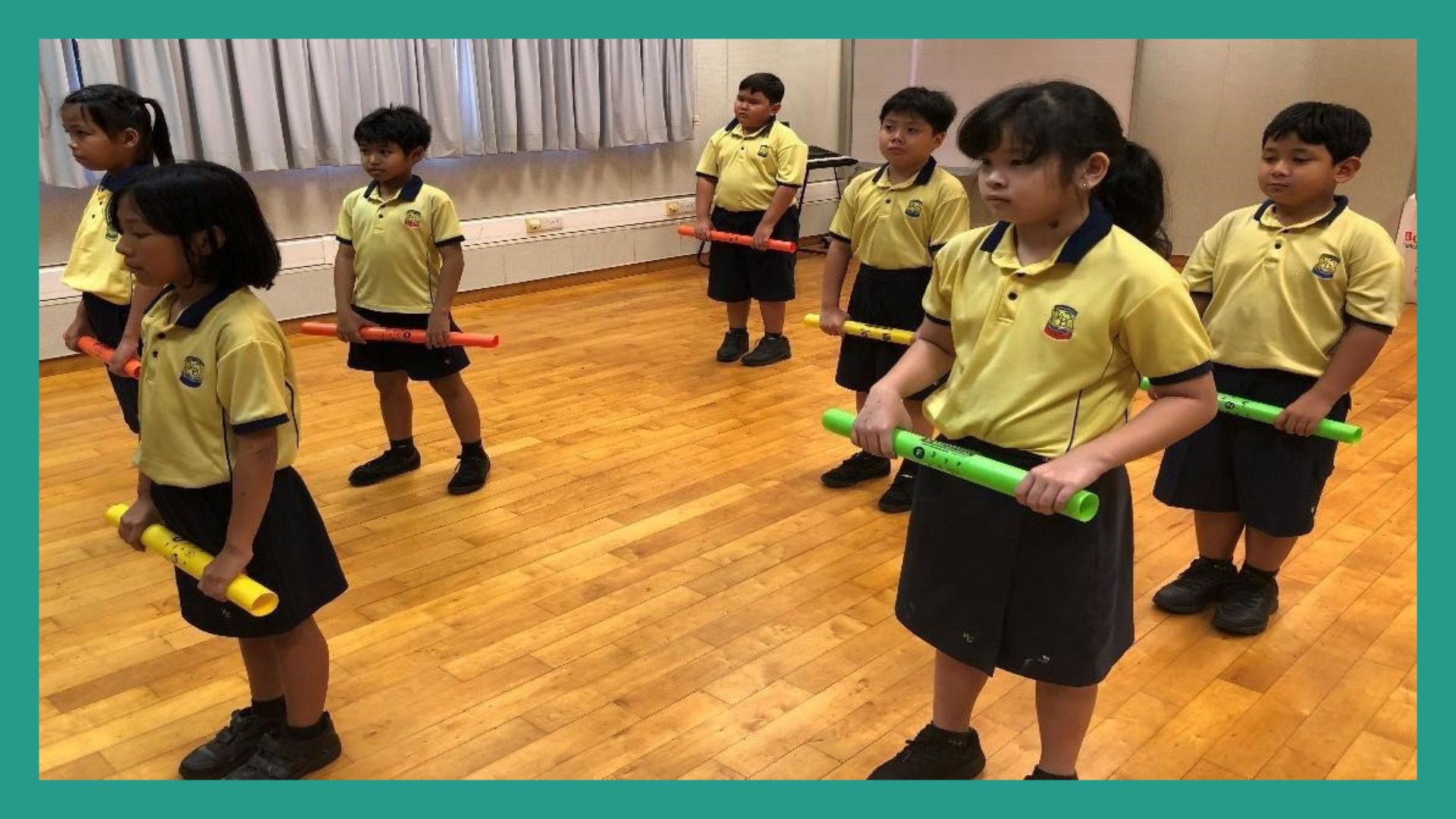
P4 GarageBand
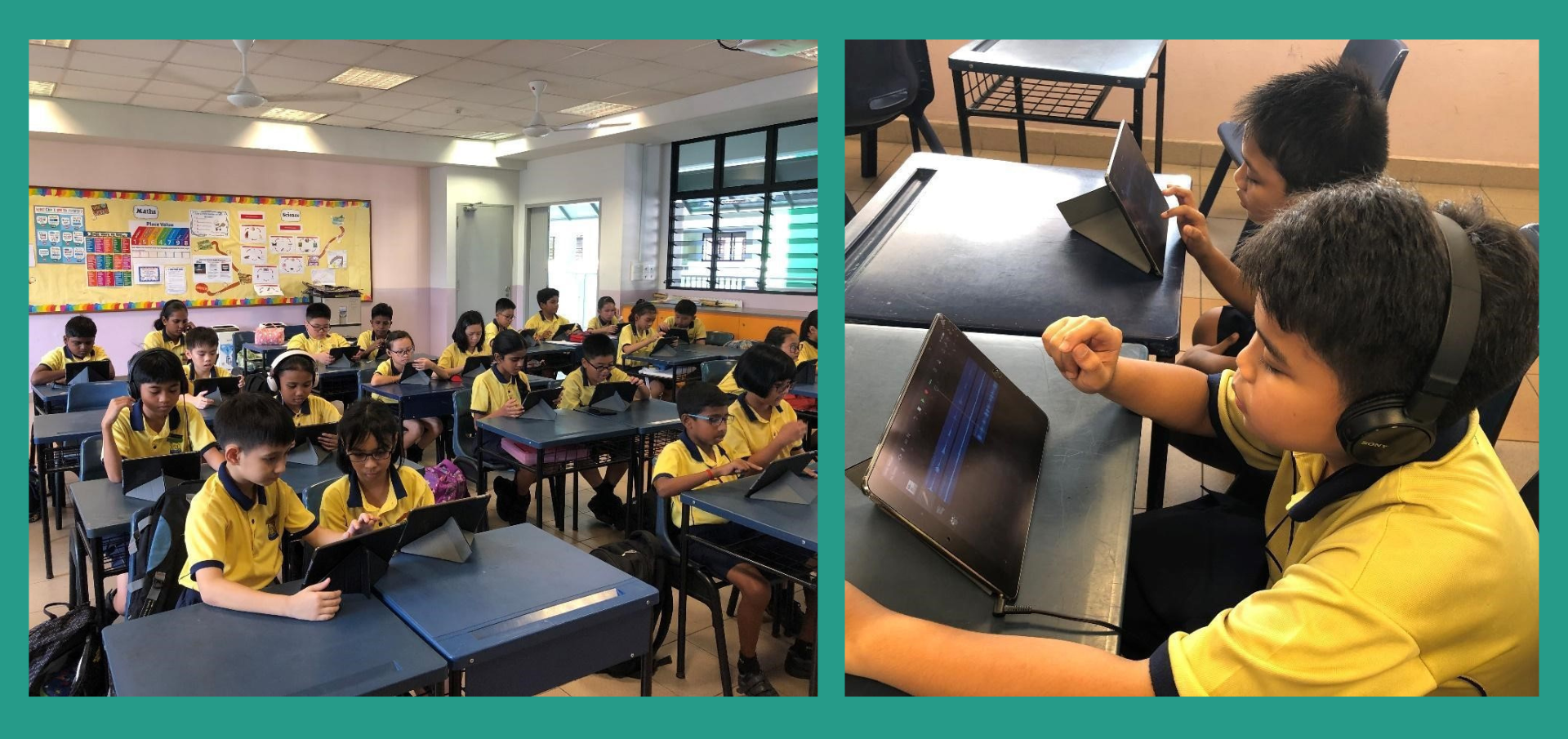
P5 Ukelele
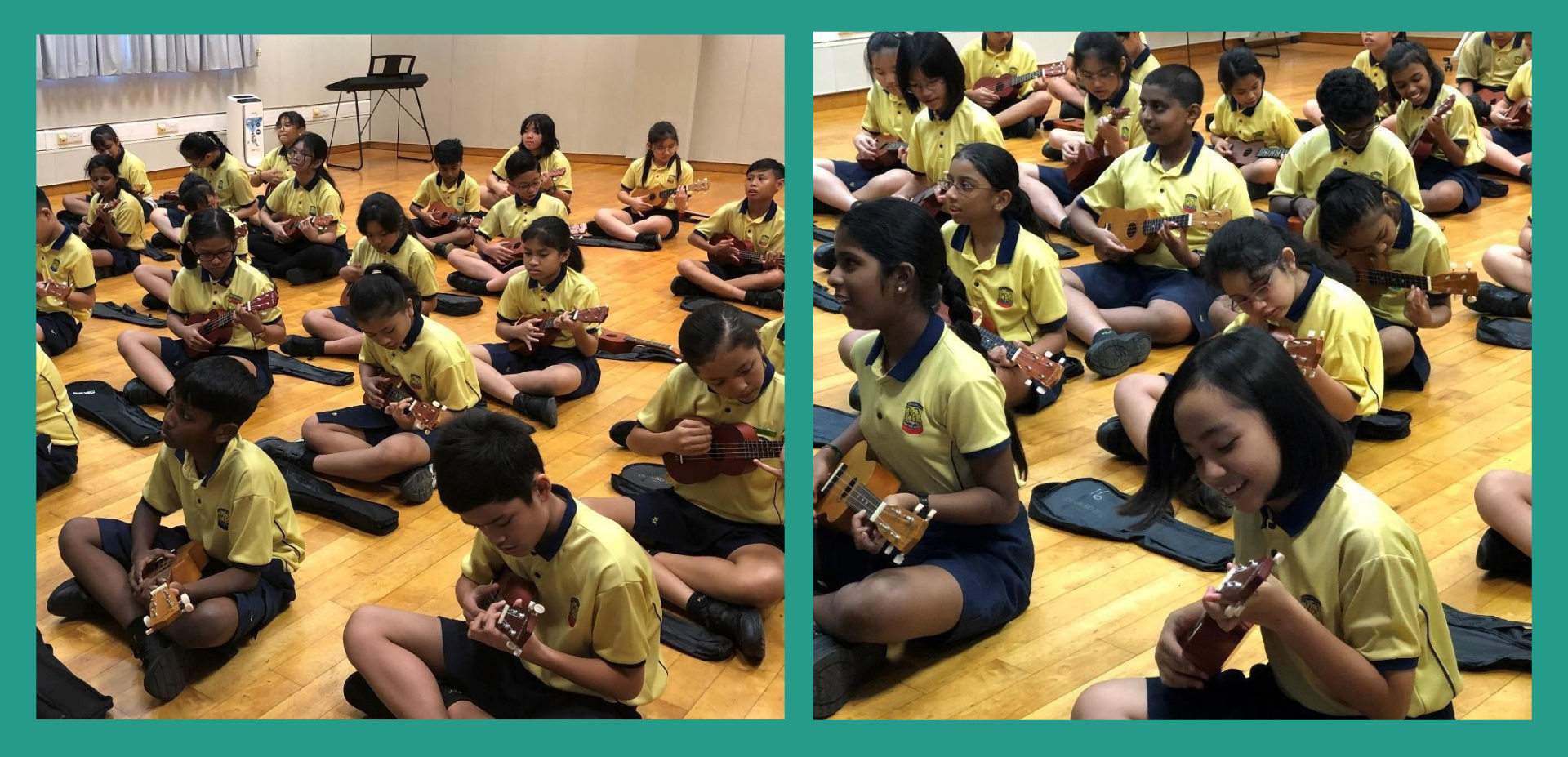
P6 Cajon
